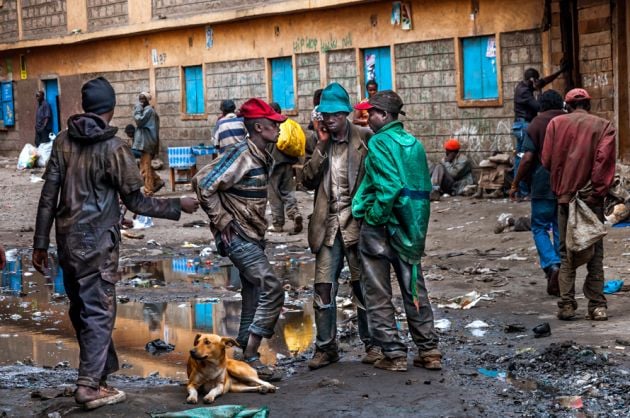Water is the essence of life. It’s a simple fact that we often take for granted, especially when we turn on the tap and clean water flows out effortlessly.
But for many people around the world, access to clean water is not a given—it’s a struggle. In this article, we delve into the concept of the human right to water, its importance, and how you, as an individual, can make a difference.
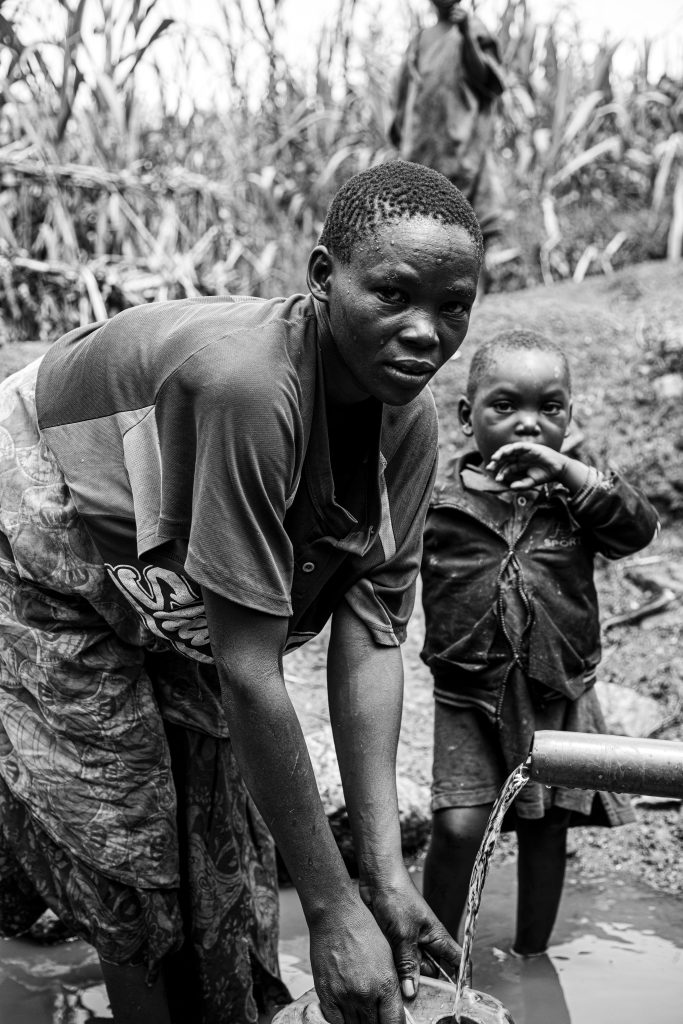
Understanding the Human Right to Water
The human right to water might seem like a given, but it’s a relatively new concept in the realm of international law.
It was only in 2010 that the United Nations General Assembly explicitly recognized the human right to water and sanitation, affirming that clean drinking water and sanitation are essential to the realization of all human rights.
The resolution calls upon states and international organizations to provide financial resources, build capacity and transfer technology, particularly to developing countries, to scale up efforts to provide safe, clean, accessible, and affordable drinking water and sanitation.
The Role of the United Nations in Establishing the Human Right to Water
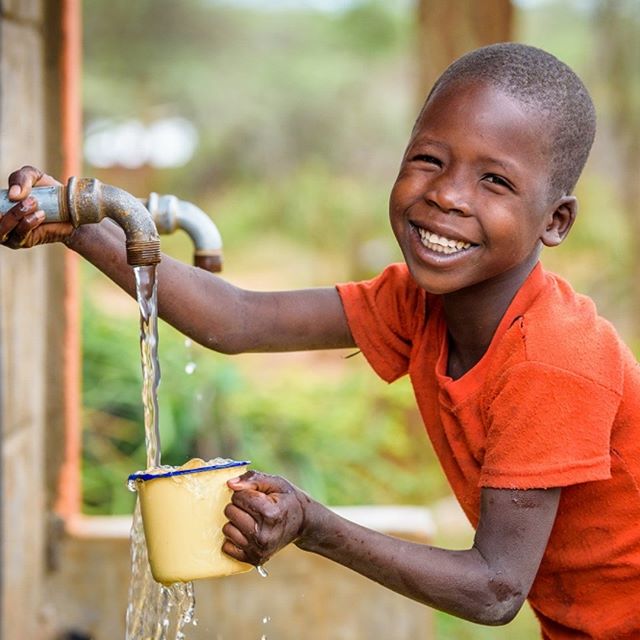
The United Nations (UN) has been instrumental in establishing the human right to water and sanitation.
In 2005, the UN launched the Water for Life Decade initiative, aiming to promote efforts to fulfill international commitments in the area of water and sanitation by 2015. This initiative marked a significant step towards recognizing the human right to water and sanitation.
On 28 July 2010, through Resolution 64/292, the United Nations General Assembly explicitly recognized the human right to water and sanitation, acknowledging that clean drinking water and sanitation are essential to the realization of all human rights.
This resolution calls upon States and international organizations to provide financial resources, help capacity-building, and technology transfer to help countries, particularly developing ones, to provide safe, clean, accessible, and affordable drinking water and sanitation for all.
The UN’s efforts have been pivotal in bringing the issue of water and sanitation to the forefront of global discourse, emphasizing the need for equitable access to these vital resources.
Despite these efforts, however, there is still much work to be done to ensure universal access to clean water and sanitation. Learn more about the UN’s role in establishing the human right to water here.
The Current State of the Human Right to Water Globally
Despite the recognition of the human right to water, the reality is that not everyone has access to clean water and sanitation.
According to the United Nations, 1 in 4 people – that’s 2 billion people around the globe – lack safely managed drinking water. Furthermore, almost half of the global population – 3.6 billion people – lack safely managed sanitation.
These staggering numbers reveal a profound disparity in access to this basic human right.
Marginalized groups are often the most affected, facing discrimination and being overlooked when it comes to accessing the water and sanitation services they need. This lack of access has profound implications for health, dignity, and livelihoods.
The human right to safe drinking water was first recognized by the UN General Assembly and the Human Rights Council as part of binding international law in 2010, and the human right to sanitation was explicitly recognized as a distinct right by the UN General Assembly in 2015.
However, the journey to universal access is far from over.
Governments are urged to take a human rights-based approach to water and sanitation improvements, focusing their interventions on those most in need.
The goal is to ensure that no one gets left behind in the quest for universal access to water and sanitation. Learn more about the current state of the human right to water globally here.
The Situation in Kenya
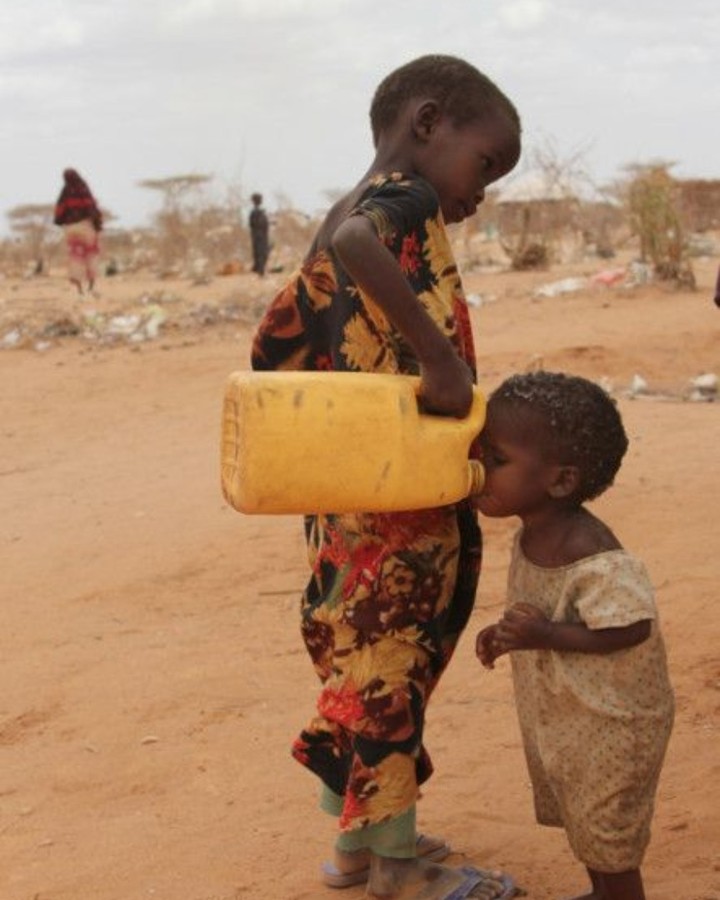
In Kenya, the situation is particularly challenging. Many low-income communities lack access to clean water and sanitation, leading to health problems and other socio-economic challenges.
According to Maji na Ufanisi, a Kenyan non-profit organization focused on water, sanitation, and hygiene (WASH), these challenges are especially pronounced in public markets, where poor sanitation facilities can lead to the spread of waterborne diseases.
However, efforts are being made to improve the situation. Maji na Ufanisi, which translates to “Water and Development,” has been working for over 27 years to transform the lives of local communities in Kenya.
They have developed highly successful policies and implemented a portfolio of projects in the WASH sector.
One of their successful interventions was in the Kongowea public market. Before their intervention, the market was dirty, with dilapidated water and sanitation facilities.
The stench emanating from these blocked sanitation facilities could be smelt 100 meters away. Maji na Ufanisi rehabilitated 60 public toilets, making them disability-friendly and handing them over to youth groups for management. Over 10,000 people have benefited from improved WASH services and 100 women and youth have directly benefited from employment from these public sanitation facilities.
Maji na Ufanisi also works with over 100 community-based organizations (CBOs) that form the large base of the organization’s implementing partners.
These CBOs manage the facilities using the pay-per-use system, ensuring sustainability.
The work of Maji na Ufanisi and similar organizations is crucial in addressing the water and sanitation challenges in Kenya.
By providing access to clean water and improving sanitation facilities, they are not only improving the health of these communities but also their socio-economic conditions. Learn more about the situation in Kenya and the work of Maji na Ufanisi here.
The Impact of Water Scarcity on Individuals and Communities
Water scarcity is not just an inconvenience; it’s a life-altering challenge that affects every aspect of life.
Lack of access to clean water can lead to a host of health problems, including dehydration, disease, and even death. But the impact goes beyond health. Water scarcity can hinder economic development, exacerbate poverty, and lead to social instability.
The Gender Dimension of Water Scarcity
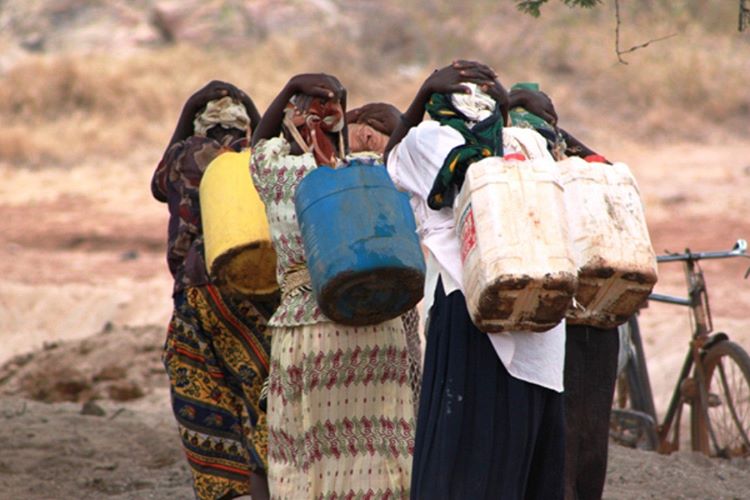
The burden of water scarcity often falls disproportionately on women and girls.
In many parts of the world, it’s the women who are responsible for fetching water for their families. This task can take hours each day, time that could be spent on education, work, or other productive activities.
Moreover, the lack of access to clean water and sanitation facilities can be particularly challenging for girls, affecting their education and future prospects.
In Kenya, organizations like Maji na Ufanisi are working to address these issues.
They have implemented a Menstrual Health Management project, providing reusable sanitary pads to girls from impoverished backgrounds. This enables them to manage their menstruation in a hygienic, sustainable, and dignified way and stay in school.
The gender dimension of water scarcity is a critical issue that needs to be addressed to achieve gender equality and empower women and girls.
By supporting organizations like Maji na Ufanisi, you can help make a difference in this area. Learn more about the gender dimension of water scarcity and the work of Maji na Ufanisi here.
The Role of Nonprofits in Advancing the Human Right to Water
Nonprofits play a crucial role in advancing the human right to water. These organizations work on the ground, implementing projects to improve access to clean water and sanitation. They also advocate for policy changes, raise awareness about the issue, and mobilize resources to support their work.
Choosing the Right Nonprofit to Support
When it comes to supporting nonprofits, it’s important to choose organizations that are transparent, effective, and aligned with your values.
Look for organizations that provide clear information about their projects, impact, and use of funds.
For instance, Maji na Ufanisi, a Kenyan non-profit organization, provides detailed information about their work in the water, sanitation, and hygiene (WASH) sector.
They share success stories, like their intervention in the Kongowea public market, where they rehabilitated 60 public toilets, benefiting over 10,000 people and creating employment opportunities for 100 women and youth.
How You Can Make a Difference
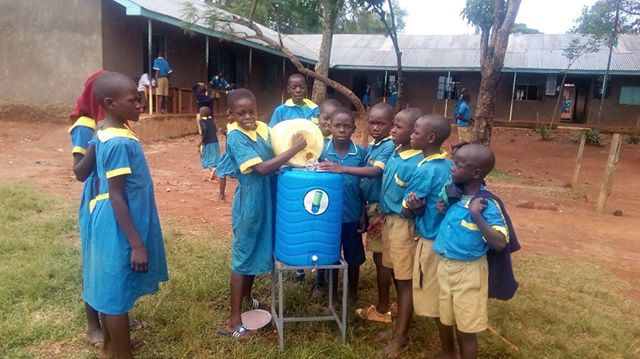
Supporting the human right to water is not just about donating money. There are many ways you can make a difference.
You can raise awareness about the issue, advocate for policy changes, volunteer your time and skills, or even start your own initiative. Every action counts, and together, we can make a difference.
Maji na Ufanisi, for example, works with over 100 community-based organizations, providing opportunities for individuals to get involved at the community level.
The Impact of Your Contribution
Your contribution to the human right to water can have a profound impact. It can help provide clean water to a family, improve health and hygiene in a community, or support a project that brings sustainable water solutions to a region.
More than that, your contribution can give people hope and empower them to improve their lives.
By donating to organizations like Maji na Ufanisi, you’re not just providing funds; you’re contributing to sustainable solutions that have a long-lasting impact. Learn more about how you can make a difference and the impact of your contribution here.
In a world where the human right to water is still a dream for many, every step we take brings us closer to making that dream a reality.
Organizations like Maji na Ufanisi are on the frontlines, turning the tide in the battle for water and sanitation. But they can’t do it alone. They need us – you, me, all of us. So, why not make a difference today?
Your donation could be the drop of water that tips the scale towards change. And remember, change, like ripples in a pond, starts small but reaches far. So, let’s start the ripple. Donate today and share the cause.
Because the human right to water is a right for all, and together, we can make it a reality. Donate here.
Frequently Asked Questions (FAQs)
- What is the human right to water?
The human right to water is the fundamental right of every individual to have access to sufficient, safe, acceptable, physically accessible, and affordable water for personal and domestic use.
- Why is the human right to water so important?
Water is essential for life, health, and dignity. Without access to clean water, individuals are at risk of disease, poverty, and a lack of opportunity. The human right to water is about ensuring everyone, regardless of their circumstances, has access to this vital resource.
- Who is responsible for ensuring the human right to water?
Governments are primarily responsible for ensuring the human right to water. However, everyone has a role to play, including individuals, communities, businesses, and non-profit organizations.
- What is the current state of the human right to water globally?
Despite progress, billions of people around the world still lack access to clean water and sanitation. The situation is particularly challenging in low-income communities and in countries experiencing conflict or natural disasters.
- What is the role of non-profit organizations like Maji na Ufanisi in advancing the human right to water?
Non-profit organizations play a crucial role in advancing the human right to water. They implement projects to improve access to clean water and sanitation, advocate for policy changes, raise awareness about the issue, and mobilize resources to support their work.
- How can I support the human right to water?
There are many ways to support the human right to water. You can donate money to organizations working on the issue, raise awareness, advocate for policy changes, or volunteer your time and skills.
- What impact can my donation have?
Your donation can have a profound impact. It can help provide clean water to a family, improve health and hygiene in a community, or support a project that brings sustainable water solutions to a region.
- What is the link between the human right to water and gender equality?
The burden of water scarcity often falls disproportionately on women and girls, affecting their education, health, and economic opportunities. Ensuring the human right to water is a crucial part of achieving gender equality.
- What is the situation in Kenya regarding the human right to water?
In Kenya, many low-income communities lack access to clean water and sanitation. However, organizations like Maji na Ufanisi are working to improve the situation by implementing water and sanitation projects and advocating for policy changes.
- How can I learn more about the human right to water?
You can learn more about the human right to water by visiting the websites of organizations like the United Nations and Maji na Ufanisi, which provide a wealth of information on the topic.
This concludes the article. If you have any feedback or need further assistance, feel free to let me know.

